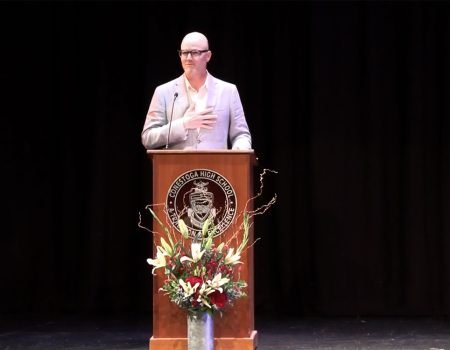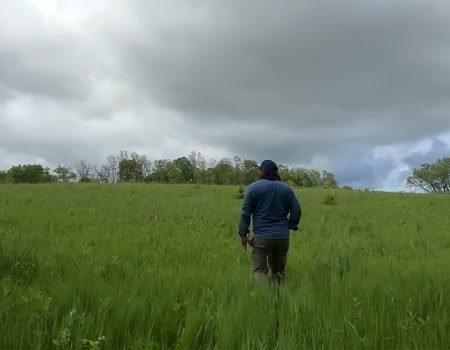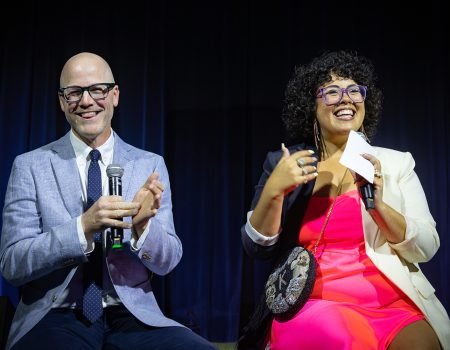Kill Your Idols
In the waning moments of the LSD trip that marks the emotional climax of the film ‘Almost Famous,’ Sweetwater frontman Russell Hammond (Billy Crudup) threatens to jump from a suburban rooftop high above a swimming pool. Arms outstretched, Hammond shouts out to a throng of adoring teenage fans below, “I am a golden god!”
The crowd roars with approval. Hammond turns unsteadily towards young journalist William Miller and says, “Tell Rolling Stone magazine that my last words were… I’m on drugs!”
“Russell!,” Miller — a proxy from director Cameron Crowe — shouts back, “I think we should work on those last words!”
“I got it, I got it. Last words: I dig music.”
Pause. Breath. Beat.
“I’m on drugs!”
All of which is a long way around to me saying that I too am ambivalent about what music means to me, and to culture: sex, drugs, love, death, god, fame…
It was all stirred up in me (again) last night at the Tribeca Film Festival premiere of ‘Kill Your Idols.’ While the 90-minute DV documentary runs a little redundant, the second-row experience was visceral, and exciting. Through interview, performance, and found footage, the film chronicles the New York No Wave movement of the late 70s. No Wave was a short-lived musical movement born of the grit and grime of the Lower east Side as a pure emotional expression and complete deconstruction of form. Bands like Suicide, Teenage Jesus & The Jerks, ESG, and Static basically laid the groundwork for Sonic Youth who paved the way for Yeah Yeah Yeahs, The Liars, and arguably, even The Strokes.
You gotta’ hear this stuff: it’s almost unlistenable. It’s basically feedback noise, screaming vocals and slammin’ drums. It’s painful, discordant stuff. And it seems like each one of these bands had some crazy-eyed frontman (or woman) flinging themselves all over the stage. While it’s difficult to take these now gray-haired performers (Arto Lindsay, Glen Branca, Lydia Lunch) for their word that these displays were un-ironic and shtick-free, it’s not difficult to sit back and be completely entertained. And it’s not difficult to appreciate, and get excited.
I’ve always wanted to rock. I think maybe I have. My college band, Smokey Junglefrog, certainly had its discordant, audience-alienating moments. I did a lot of drugs, drank a lot of tequila (though I never was into random groupie sex). I threw myself around the stage with no sense of irony (though I was aware of the audience). And my early years in New York found me playing loud, fast, dumb and in nail polish and vinyl pants on the Lower East Side. But the older I get, the more I’ve comfortable I’ve become with my strengths: soft, mid-tempo melodic songs about love and leaving. And the more comfortable I’ve become with me, with not having to be in the audience’s gaze, with not having to bath in feedback and applause, with writing songs for me first, you second. I think it’s a good thing, but there is some loss.
Nick Hornby writes of this sorta’ thing in his collection of essays, “Songbook.” He’s not a musician, but he is a fan of music, and somehow he gets at the point I’m trying to make.
So much of what you consume when you get older is about accommodation: I have kids, and neighbors, and a partner who could quite happily never hear another blues-metal riff or block-rockin’ beat in her life; I have less time, less tolerance for bullshit, more interest in good taste, more confidence in my own judgment. The culture with which I surround myself is a reflection of my personality and the circumstances of my life, which is in part how it should be. In learning to do that, however, things get lost, too, and one of the things that got lost — along with taste for, I don’t know, hospital drama involving sick children, and experimental films — was Jimmy Page. The noise he makes is not who I am anymore, but it’s still a noise worth listening to; it’s also a reminder that the attempt grow up smart comes at a price.



